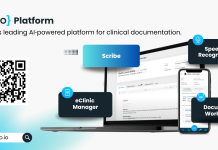Millions of people across the UK are set to benefit from improved public services, thanks to the government’s new initiative to harness cutting-edge technology
A newly formed panel of twelve digital experts and academics will play a key role in shaping a 10-year vision for the future of digital government. Their aim is to drive innovation, reduce waiting times, and enhance the accessibility of public services.
The new digital panel
The panel, co-chaired by tech entrepreneur Baroness Martha Lane Fox and Paul Willmott, Chair of the Central Digital and Data Office, brings together some of the country’s brightest minds in technology and digital transformation.
Among the members are Poppy Gustafsson, co-founder of cybersecurity firm Darktrace, and Dr Anne-Marie Imafidon, a leader in STEM education and digital inclusion. This diverse group will advise on how the government can make better use of technology to improve the efficiency and effectiveness of public services.
This comes as the government reduces its digital transformation efforts under the Department for Science, Innovation, and Technology (DSIT), following a merger of three key units from the Cabinet Office and No. 10 Downing Street.
The DSIT now oversees the development and management of GOV.UK, the main platform for accessing government services, and leads a network of over 28,000 technology professionals working across the public sector.
Modernising public services
This shift is expected to cut through inefficiencies, reduce backlogs, and provide faster, more personalised services to citizens. The group’s work will also focus on ensuring digital solutions are inclusive and accessible, promoting trust and transparency in the process.
By using technology, the government aims to boost economic growth, reduce administrative burdens, and improve public service outcomes for citizens across the UK.
This digital plan is part of a bigger effort to ensure that public services are not just functional but aligned with the digital experiences people have come to expect in their everyday lives.
As the government begins this ambitious transformation, the input from the panel will be important in shaping a future where technology is at the heart of public service delivery. Millions are expected to benefit from more streamlined, efficient services, improving the quality of life for people across the country.











